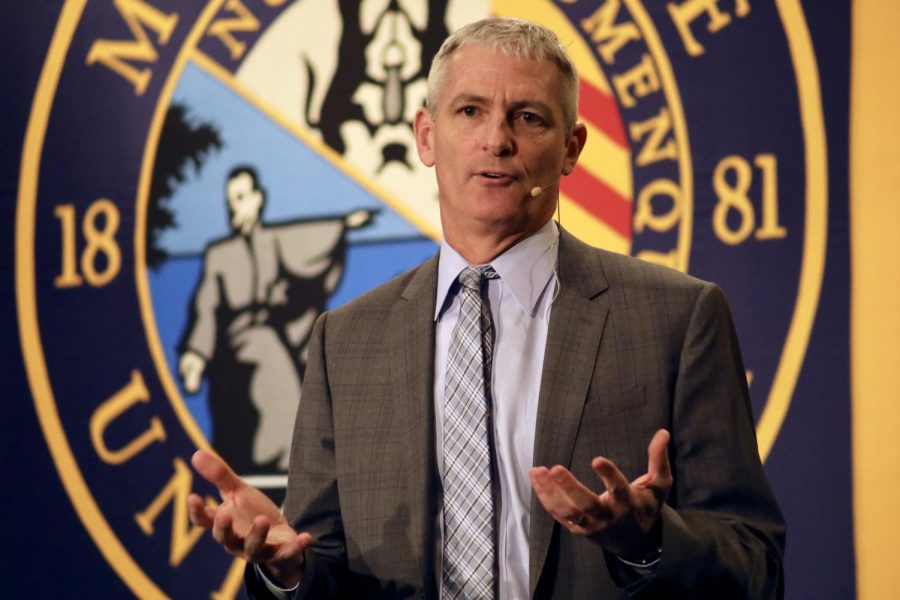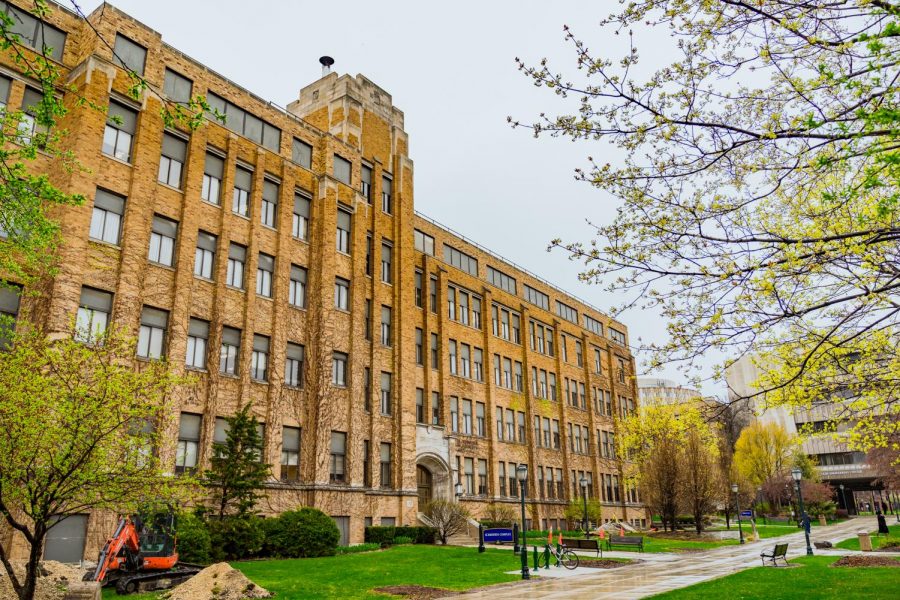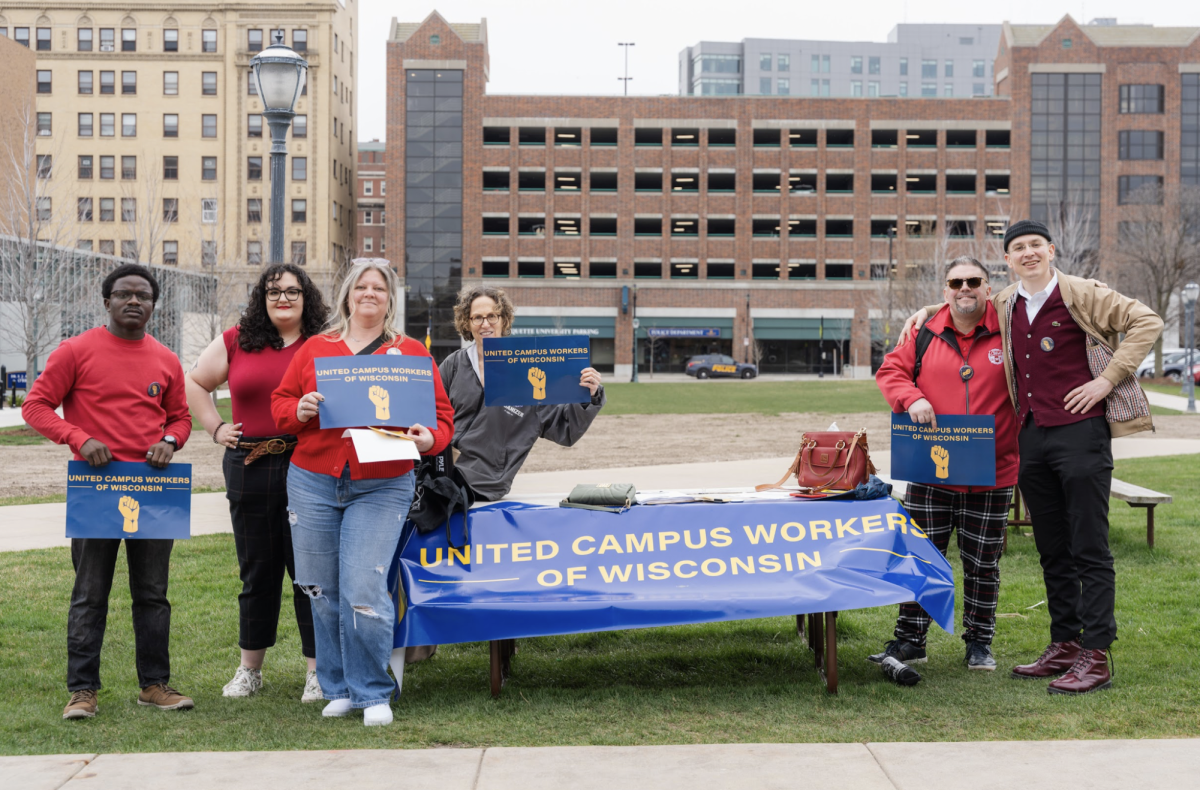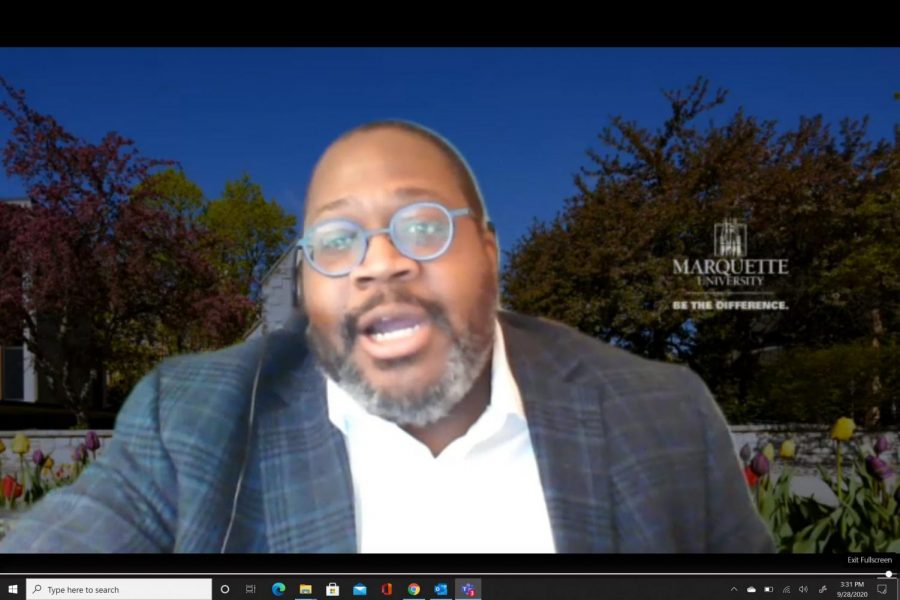The university is facing financial risks of $20-25 million in the fiscal year 2021, primarily due to the COVID-19 pandemic, University President Michael Lovell said in a letter to the Marquette community.
To combat these risks, the university is taking numerous actions, including the reduction of in university leadership salaries.
The University Leadership Council, outside of Academic Senate and Staff Senate representatives, will all take a 5% reduction in salaries. ULC consists about 35 people and all vice presidents, deans and provosts.
Head men’s basketball coach Steve Wojciechowski and head women’s basketball coach Megan Duffy also both agreed to take the 5% reductions, Lovell said in the letter.
Lovell also said that both himself and Provost Kimo Ah Yun have taken salary reductions since April.
“The two of us and Senior Vice President and Chief Operating Officer Joel Pogodzinski have volunteered to take larger salary reductions that amount to 10% of our annual salaries,” Lovell said in the letter.
Employer contributions to Marquette’s 403(b) retirement plan will be suspended for the 2020-21 fiscal year, beginning July 1. Lovell said this will amount to cost savings of approximately $10 million.
Faculty and staff merit increases have been canceled, resulting in cost savings of approximately $4 million, Lovell said.
All nonessential hiring remains paused.
The university will also reduce discretionary spending by 10% campuswide, resulting in cost savings of approximately $6 million, Lovell said.
“This reduction includes expenditures that are not essential to teaching and supporting our students,” Lovell said in the letter. “Vice presidents, deans and vice provosts will be given targeted budget reductions for their respective areas. University travel by faculty and staff will be limited and must be approved by their representative on the University Leadership Council.”
Lovell also said a working group has been formed to assess the viability of initiatives not essential to academic life, research and scholarship or to the university’s Jesuit mission.
“Given our known financial risks for the coming year, these are difficult but necessary steps that we must undertake together to preserve the future of Marquette,” Lovell said in the letter.
This decision was made following the university’s decision to furlough 250 employees in April in response to economic difficulties brought about from COVID-19. Marquette also said in April that the university was facing a $15 million budget shortfall due to COVID-19.
In the fall, the university laid off 2.5% of staff as part of the university’s “cost management review process.” This process is part of the university’s attempt to address financial and demographic challenges affecting the higher education industry, Lovell said in an August letter to faculty and staff. This includes the perceived decrease in college-aged students beginning in 2026, Lovell said in the August letter.
This story was written by Annie Mattea. She can be reached at anne.mattea@marquette.edu.














Dale A. Bagshaw • Jun 24, 2020 at 7:50 am
Some additional thoughts to ponder:
1. The cost of higher education has grown 5X the rate of inflation and 2X the cost of health care since the early 80s! This makes this gesture seem trivial.
2. All these universities should committ to a total tuition freeze (like Purdue). Purdue’s tuition and fees have been frozen for (I believe) 9 years.
3. You should ask about the volume of added administration over the last decades. I would create a simple metric such as, “Administrators per FTE of student attendance” and look at that trend line. My guess is, like most, they have added a large volume of administrative cost which again makes the 5% appear rather trivial.
4. Please note I have nothing against Marquette as an institution. The above commentary would be true for virtually all higher education institutions in America.
5. Wise parents are now significantly questioning the ROI of higher education. Too much cost, too much unnecessary building, too many degrees with a limited or virtually no ROI, and too many students sadled with debt that receive no degree.